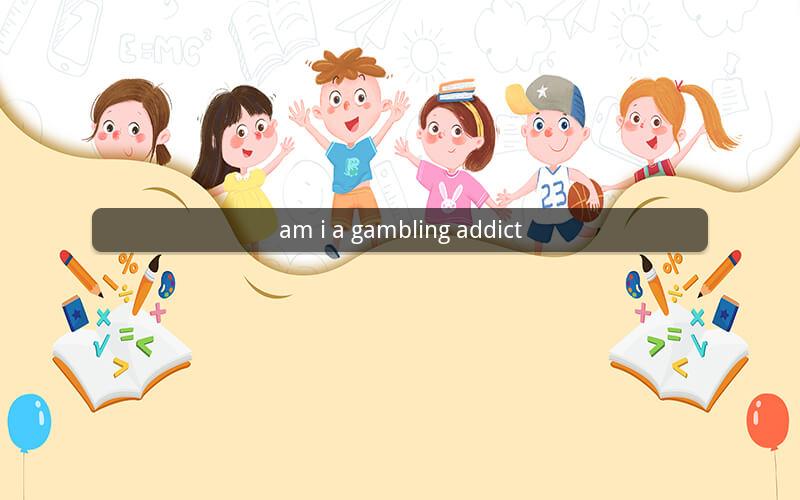
Table of Contents
1. Understanding Gambling Addiction
2. Signs and Symptoms of Gambling Addiction
3. The Impact of Gambling Addiction on Personal Life
4. Psychological Aspects of Gambling Addiction
5. The Role of Society in Gambling Addiction
6. Treatment and Support for Gambling Addiction
7. Preventing Gambling Addiction
8. Personal Stories of Recovery
9. The Legal and Ethical Implications of Gambling
10. Future Directions in Research and Policy
---
1. Understanding Gambling Addiction
Gambling addiction, also known as compulsive gambling or problem gambling, is a condition characterized by an inability to control the urge to gamble, despite negative consequences. It is a complex disorder that affects individuals of all ages, backgrounds, and socioeconomic statuses.
2. Signs and Symptoms of Gambling Addiction
Identifying gambling addiction can be challenging, as the symptoms may vary from person to person. Common signs include:
- Preoccupation with gambling thoughts
- Needing to bet more money to achieve the same thrill
- Chasing losses
- Lying to hide gambling activities
- Risking personal relationships, work, or health
- Borrowing money or selling possessions to fund gambling
3. The Impact of Gambling Addiction on Personal Life
Gambling addiction can have devastating consequences on an individual's personal life. It can lead to financial ruin, strained relationships, job loss, legal problems, and even suicidal thoughts. The impact extends to family members and friends, who often bear the brunt of the consequences.
4. Psychological Aspects of Gambling Addiction
The psychological aspects of gambling addiction are complex. Some individuals may turn to gambling as a way to cope with stress, boredom, or emotional pain. Others may have a genetic predisposition to addiction, making them more susceptible to developing a gambling problem.
5. The Role of Society in Gambling Addiction
Society plays a significant role in the development and perpetuation of gambling addiction. The availability of gambling venues, the marketing of gambling products, and the normalization of gambling behavior can all contribute to the problem.
6. Treatment and Support for Gambling Addiction
Treatment for gambling addiction typically involves a combination of therapy, support groups, and self-help strategies. Cognitive-behavioral therapy (CBT) is particularly effective in helping individuals change their gambling-related thoughts and behaviors. Support groups, such as Gamblers Anonymous, provide a sense of community and mutual support.
7. Preventing Gambling Addiction
Preventing gambling addiction begins with education and awareness. Individuals should be aware of the risks associated with gambling and the signs of addiction. Parents, educators, and policymakers can take steps to promote responsible gambling and protect vulnerable populations.
8. Personal Stories of Recovery
Personal stories of recovery from gambling addiction are powerful reminders of the possibility of overcoming this challenging condition. Many individuals have found hope and healing through therapy, support groups, and a strong commitment to change.
9. The Legal and Ethical Implications of Gambling
The legal and ethical implications of gambling are complex. While gambling is legal in many countries, it raises concerns about addiction, morality, and the potential for exploitation. Balancing the economic benefits of gambling with the protection of individuals and society is a ongoing challenge.
10. Future Directions in Research and Policy
Future research on gambling addiction should focus on identifying effective prevention and treatment strategies, as well as exploring the genetic and environmental factors that contribute to the disorder. Policy makers should continue to review and update gambling regulations to ensure the protection of vulnerable populations.
---
Questions and Answers
1. Q: What is the difference between problem gambling and gambling addiction?
- A: Problem gambling refers to any gambling behavior that causes distress or harm, while gambling addiction is a more severe form of problem gambling characterized by an inability to control the urge to gamble.
2. Q: Can gambling addiction be cured?
- A: While there is no guaranteed cure for gambling addiction, many individuals successfully recover through treatment, support, and lifestyle changes.
3. Q: How can I tell if I have a gambling problem?
- A: Look for signs such as preoccupation with gambling, lying about gambling activities, and negative consequences in personal, financial, or professional life.
4. Q: Are there any medications that can help treat gambling addiction?
- A: While there are no specific medications for gambling addiction, some individuals may benefit from medications used to treat related disorders, such as depression or anxiety.
5. Q: Can family therapy help with gambling addiction?
- A: Yes, family therapy can be an effective component of treatment, helping to address the impact of gambling addiction on relationships and family dynamics.
6. Q: Is it possible to prevent gambling addiction in children?
- A: Yes, preventing gambling addiction in children involves educating them about the risks of gambling, setting clear boundaries, and monitoring their exposure to gambling.
7. Q: Can gambling addiction lead to criminal behavior?
- A: Yes, individuals with gambling addiction may engage in criminal activities, such as theft or fraud, to fund their gambling habits.
8. Q: Are there any support groups for gambling addiction?
- A: Yes, organizations such as Gamblers Anonymous offer support groups for individuals struggling with gambling addiction.
9. Q: How can I help a loved one with a gambling addiction?
- A: Encourage your loved one to seek professional help, offer support, and be patient during their recovery journey.
10. Q: Can gambling addiction be genetic?
- A: There is evidence to suggest that genetics may play a role in gambling addiction, making some individuals more susceptible to developing the disorder.